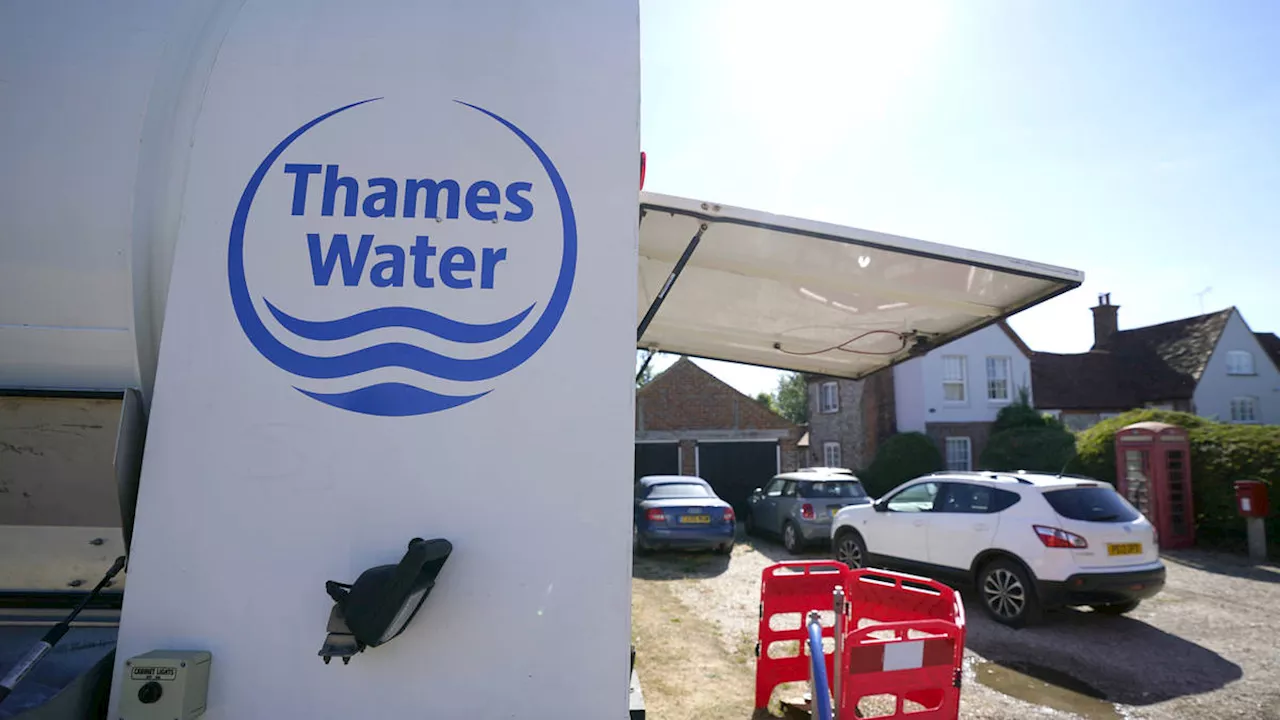Thames Water has said it will have to increase bills by 59% by 2030 in a new business plan for the coming years.
In its response to Ofwat's draft determination on water companies' plans, Thames proposed raising average yearly water bills to £666.50 per customer by 2030, a 52% rise. That could rise to £696, a 59% increase, if it is given extra spending allowances by the regulator. The average bill over the five year period from 2025 to 2030 would be £638 under the proposal. Average bills in 2023 to 2024 were £433.
" He added: "The money we're asking for from customers will be invested in new infrastructure and improving our services for the benefit of households and the environment. "They are not being asked to pay twice, but to make up for years of focus on keeping bills low.
United Kingdom Latest News, United Kingdom Headlines
Similar News:You can also read news stories similar to this one that we have collected from other news sources.
 Thames Water wants to up bills by 59% to £696 per customer by 2030It follows Ofwat's findings showing 24 per cent of people struggle to pay their water bills
Thames Water wants to up bills by 59% to £696 per customer by 2030It follows Ofwat's findings showing 24 per cent of people struggle to pay their water bills
Read more »
 Thames Water proposes fresh bills hike of up to 59% by 2030Average bills for Thames Water customers could rise to as much as £696 a year under the proposals put forward on Wednesday.
Thames Water proposes fresh bills hike of up to 59% by 2030Average bills for Thames Water customers could rise to as much as £696 a year under the proposals put forward on Wednesday.
Read more »
 Thames Water seeks 52% hike to bills by 2030 as industry criticises watchdog's curbsCompanies set a collision course with the regulator over the amount they can charge in return for investment while Thames raises the stakes further by upping its proposals for bill increases.
Thames Water seeks 52% hike to bills by 2030 as industry criticises watchdog's curbsCompanies set a collision course with the regulator over the amount they can charge in return for investment while Thames raises the stakes further by upping its proposals for bill increases.
Read more »
 Water companies fined record £XXm by regulatorThames Water, Northumbrian Water and Yorkshire Water face fines for repeated sewage leaks.
Water companies fined record £XXm by regulatorThames Water, Northumbrian Water and Yorkshire Water face fines for repeated sewage leaks.
Read more »
 'Citizen scientists' call for more accountability over Thames pollution'Citizen scientists' have been conducting water quality tests in the River Thames since May.
'Citizen scientists' call for more accountability over Thames pollution'Citizen scientists' have been conducting water quality tests in the River Thames since May.
Read more »
 Thames Water agrees to increased scrutiny to avoid fineStruggling utility accepts greater oversight and new independent directors in lieu of regulatory penalty
Thames Water agrees to increased scrutiny to avoid fineStruggling utility accepts greater oversight and new independent directors in lieu of regulatory penalty
Read more »
